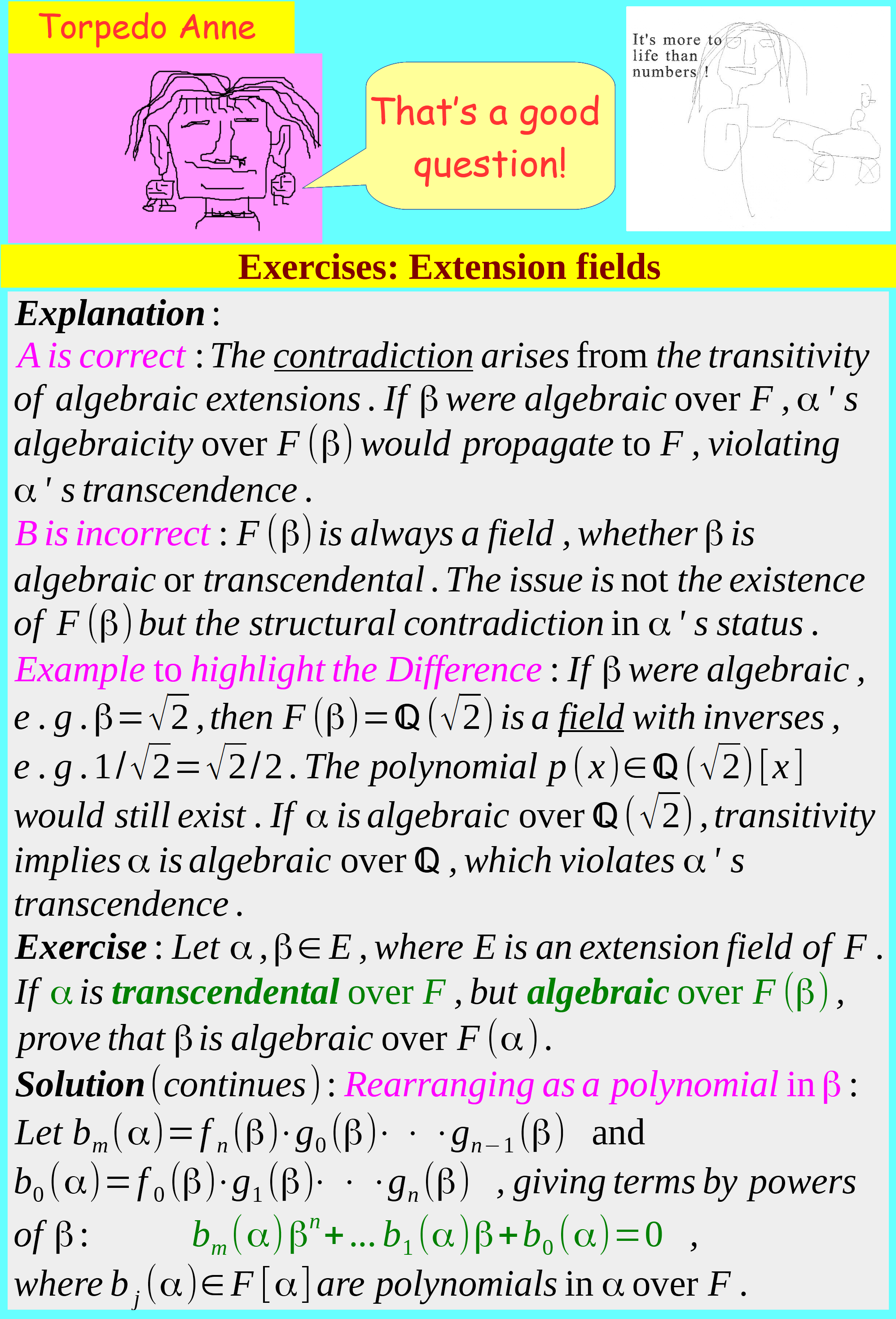page1951 Rings Matthias Lorentzen...mattegrisenforlag.com
Look at the picture beneath, then
scroll down to the question and click the correct Answer button.

Question
In the proof that `beta` is algebraic over `F(alpha)`, why
must at least one coefficient `b_j(alpha)` in the
polynomial equation `sum_(j = 0)^m b_j(alpha)beta^j = 0`
be non-zero:
A) If all `b_(alpha) = 0`, this would imply a non-trivial
polynomial equation for `alpha` over F, contradicting
`alpha's` transcendence.
B) If all `b_j(alpha) = 0`, the equation reduces to 0 = 0,
making `beta` algebraic
?
